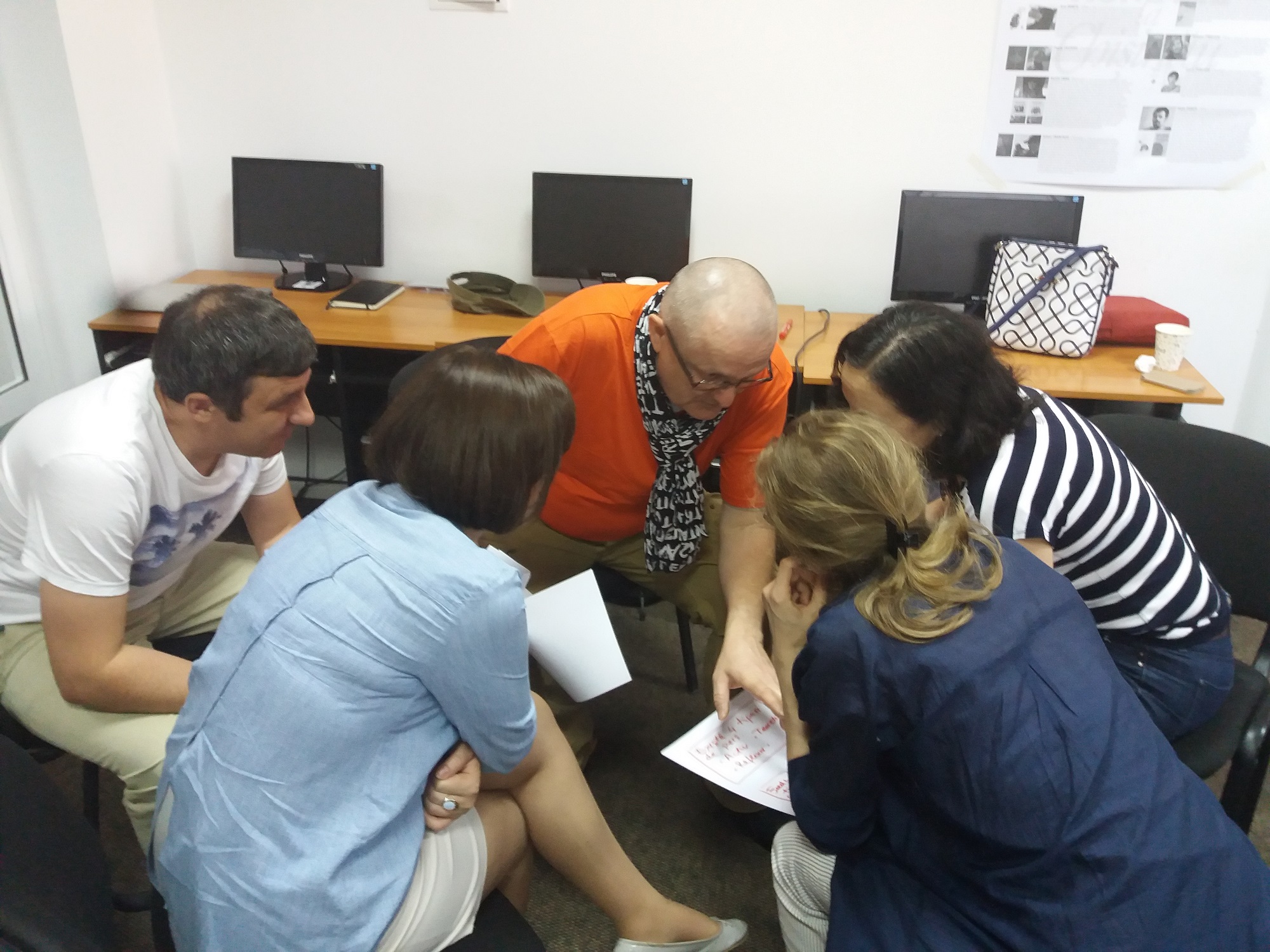Media Law, a Course that Makes Journalists More Responsible

Does a reporter have the right to photograph people in the street or in public places? But in private places? How and under what conditions can journalists protect their sources? What can journalists do when their access to information is restricted? What is value judgment and what do journalists risk when they spread false information and thus damage a person's dignity and honor? These are only a few of the questions addressed by the SAJ students at the Media Law course. The one who taught them about rights and obligations was the lawyer Tatiana Puiu, project coordinator of Freedom House, USA.
During the five days of the course, future journalists studied articles and laws that target the media directly. They have learned about the basic provisions on access to information, state secret, defamation, offence, censorship. They also discussed about the way broadcast licenses are issued, about the duties of the Broadcasting Coordinating Council (BCC) and about journalists’ obligations. In this regard, Tatiana Puiu drew attention to the sanctions that a reporter risks to get for slander, violation of the rules on using personal data, use of video (photo) or voice of a person taken in a private space without their consent.
During the course, students also had some guests – media experts. With Ion Creanga, head of the General Legal Directorate of Moldova’s Parliament Secretariat, they discussed the process of adopting a law; from the journalist Dumitru Lazur, coordinator of the project “Promoting Media Freedom and Pluralism in Moldova,” they learned what media projects are implemented by the Council of Europe in our country. Anastasia Nani, editor at Anticoruptie.md , who is also a graduate of the School of Advanced Journalism, talked about the correct use of open government data. And from Olga Gututui, a member of the BCC, they learned when Moldova will switch to digital television and how broadcasters are sanctioned for violating the Broadcasting Code.
How do we address human rights issues properly and what is the role of the media in promoting them? This topic was discussed with two other guests: Olesea Perean, program director at the UN Office for Human Rights, and Ludmila Bogheanu, communications consultant at the same organization. The problem of torture in Moldova and, in particular, the case of Andrei Braguta, caused intense discussions among SAJ students. Future journalists have learned that delivering true information to society is more important than constantly seeking sensations.
Do we have the right to download movies, music or photos from the internet? Do we have the right to reproduce or plagiarize texts, and how do we protect our creations? More details about copyright SAJ students learned from lawyer Ion Tiganas, former deputy head of the Intellectual Property Agency.
The next course on the students’ schedule is Magazine Journalism.
